Medically review by Kim Langdon
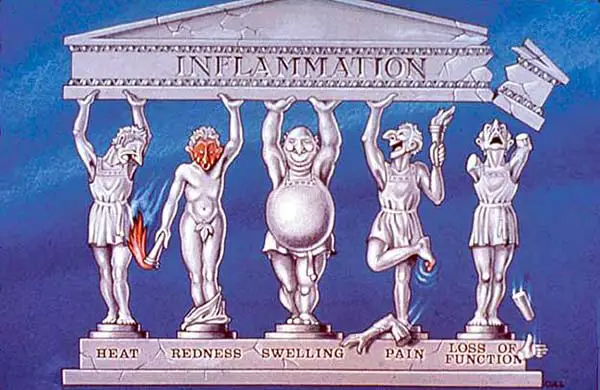
Ah, inflammation. It's not so glamorous, and this is especially true if you've experienced the effects of it firsthand.
Maybe, you're not even aware of the impact this issue can have on your health.
If you've dealt with autoimmune disease, you're probably more familiar than the average bear.
If you're doing any research in terms of healthy eating, you probably hear the term anti-inflammatory tagged on to many foods.
So, what does it all mean?
Inflammation is, by definition, a localized physical response to an injury, disease, or infection in which part of the body becomes reddened, swollen, hot, itchy, and often painful.
Think chronic pain, injuries, and general bloating. All of these things can be caused and worsened by inflammation, especially when you don't do anything to treat it.
Inflammation is also caused by stress, so long office hours and hectic home lives can really take a toll on your body both physically and mentally.
Now, inflammation is essentially an immune response to protect the body.
In the case of working out, your muscles become inflamed under the stress and metabolic processes of physical activity and repair themselves with rest and proper nutrition.
This inflammation is necessary and even good. It's when the chronic inflammation kicks in that we face trouble.
Let's talk about five ways inflammation might be sabotaging your health, goals and weight loss.
Worsening symptoms of autoimmune disease
A few examples of autoimmune diseases include Hashimoto's, Graves' disease and Rheumatoid arthritis.
The one thing these all have in common is that they are all an immune response caused by systemic damage of the disease which causes inflammation.
It's important to remember that inflammation is a symptom, so these diseases are often recognizable due to chronic pain, brain fog or leaky gut.
Unlike the immune response to say, inflammation caused by a splinter, autoimmune disease doesn't allow the body to heal naturally because the body is attacking itself thinking its tissues are foreign.
The body is trying, but it has an overactive response causing a lack of efficiency in fighting it off.
How to fix it: An elimination diet and stress management focused on anti-inflammatory foods can help to ease symptoms of autoimmune disease due to less inflammation in the body.
It's often advised to work with a functional medicine physician to work on these problems for a long-term solution to reduce or eliminate flares.
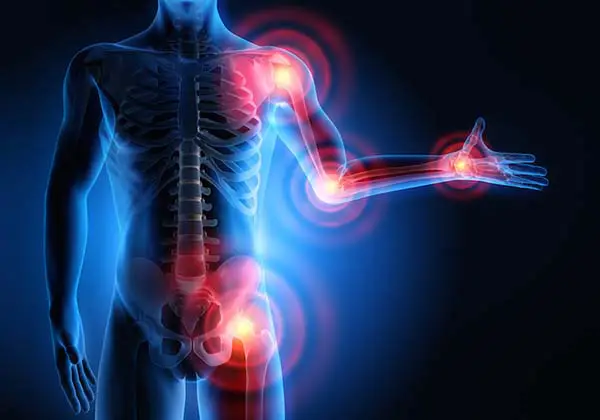
Inflammation may hinder weight loss goals
While the idea of weight loss is often quite straightforward i.e. eat nutritious food, move more often, and watch your portions, there's more at play in some people.
Let's take inflammation, for example, and uncover just how it can prevent you from losing weight and even packing on the pounds.
The general idea behind this is that fat cells expand causing a state of chronic inflammation as an individual gains weight.
Therefore, they're activating the immune system in ways the body isn't accustomed to at a healthy size.
If you're trying to lose weight, your fat cells are oftentimes already inflamed which means the body is starting out in a stressed state.
By losing the weight, we eliminate this problem. But what does that mean if inflammation is making it difficult?
How to fix it: Add in anti-inflammatory foods while eating at a calorie deficit.
This study showed that participants who went on a low-calorie diet reduced inflammation in their fat cells, so watching portions could do the trick.
Snack on foods rich in antioxidants and polyphenols like berries and broccoli while upping your omega-3's (especially against inflammatory omega-6's) with oily fish.
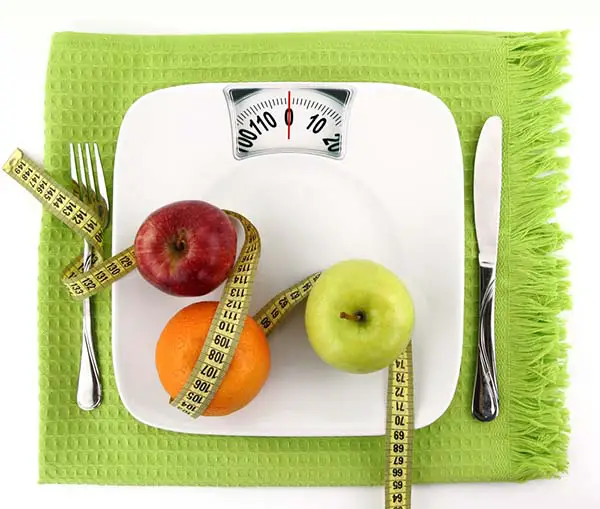
Causing or worsening mood disorders
Feeling like you're in a funk?
Whether or not you have a history of anxiety or depression, these disorders can come on at any time in life.
This is especially true if your body is already under the stress of an autoimmune disease.
This study shows that higher levels of inflammation are thought to accompany depression symptoms including fatigue, reduced appetite, withdrawal, and inhibited motivation.
While those suffering from mood disorders should work with a treatment team to figure out what works for them in terms of medication and therapy, reducing inflammation can be an easy-to-do and natural therapeutic intervention, especially regarding simple diet and lifestyle changes.
How to fix it: Reducing stress in everyday life can reduce chronic inflammation immensely.
Not only will it address inflammation, but proper stress and time management can lessen symptoms of anxiety and depression on their own.

Insulin resistance, metabolic syndrome & diabetes
Over time, chronic inflammation can lead to weight gain which comes with its own set of problems.
Even if you're not gaining weight, the issue of inflammation has been proven to cause insulin resistance, especially as the obesity epidemic rises.
This means the body cannot process glucose properly, leading to fat deposition and can ultimately lead to Type 2 Diabetes.
How to fix it: Weight loss is easily the most effective intervention when it comes to insulin resistance and metabolic syndrome, although insulin resistance can make it difficult to actually lose weight.
Eating less sugar and carbohydrates is vital (refer to the inflammatory foods list below), so an elimination diet that addresses inflammation can be helpful.
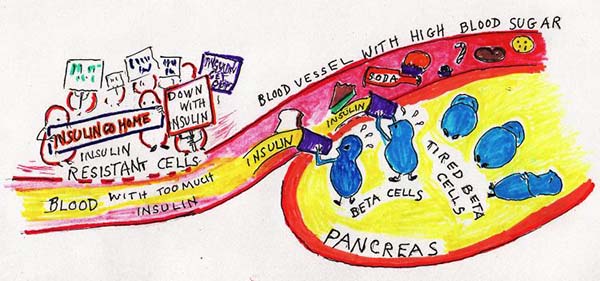
Poor gut health & digestion
This is probably the most common reaction to inflammation in the body, and one we could all stand to work a little harder on.
By optimizing gut health, we take charge of preventing just about every disease out there. After all, all disease begins in the gut!
The bacteria in our gut has a lot to do with our overall health, and by feeding it good bacteria, we truly begin to address the problem.
This makes it so that we our bodies can protect themselves against infection, regulate metabolism, and keep our immune systems in check (hence the link between autoimmunity and inflammation).
When the bad bacteria outweighs the good, we become inflamed.
How to fix it: Studies have shown that taking probiotics can help stimulate an immune response (a good one!) to help keep the gut in good shape.
You can also add in gut-healthy gelatin, fermented veggies, and an overall healthy diet to keep things in working order and continue warding off disease.
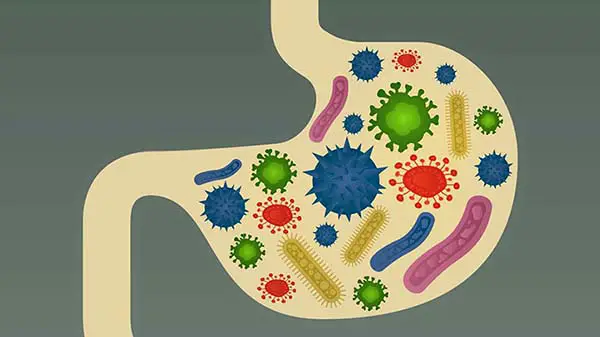
Foods to avoid that cause inflammation
Addressing inflammation and the problems it brings on is more about what you add into your diet than what you take out.
Sometimes, it's important to recognize that elimination diets can often reduce inflammation substantially.
These are a few foods you should consider avoiding if you're attempting to address any underlying problems:
- Sugar
- Trans fats
- Omega-6 fatty acids (found in sunflower oil, soybean oil, peanut oil, etc.)
- Gluten
- MSG
- Aspartame
- Alcohol
Best anti-inflammatory foods you should be eating
- Omega-3 fatty acids (salmon, olive oil)
- Avocado
- Fermented vegetables
- Berries
- Cruciferous greens
- Green tea
- Spices (turmeric, ginger, garlic)
We hope you found this guide to be helpful! Share your favorite anti-inflammatory tips and recipes with us below.
This article was fact checked for accuracy by Dr. Kim Langdon, MD. As always, this is not personal medical advice and we recommend that you talk with your doctor.
References
Kimberly Langdon M.D. is a retired University-trained obstetrician/gynecologist with 19-years of clinical experience. She delivered over 2000 babies to mothers in a suburban Midwestern community.


Perhaps I have missed it? Maybe the discussion is coming in the future? I am referring to a very important component to eating, chewing. So many of us are dealing with digestive issues and/or leaky gut, I am wondering if there will be a discussion on the importance of mindful eating, eating slowly and chewing, chewing, chewing. We eat way too fast and really do not chew our food too make the digestion process easier.
You’re right. This is such a vital beginning step outside the science behind leaky gut and the inner workings of our body. I personally would love to delve into a piece about that and really put those strategies to the test. You can look forward to that soon. Thanks for the inspiration, Curt 🙂 You’re very wise!
Smart idea Curt!